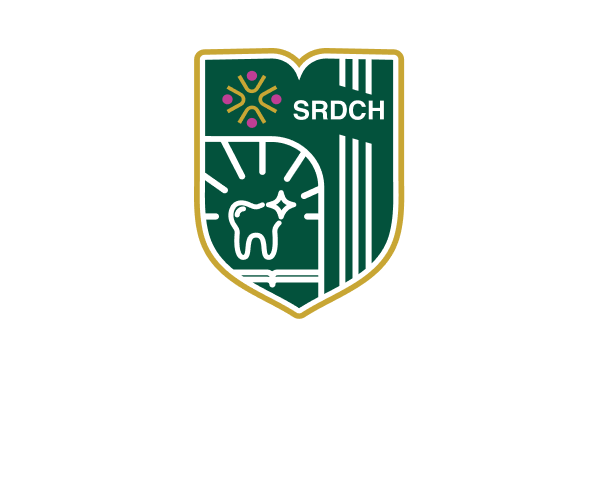Code of Ethics

Broad Principle
Sri Ramakrishna Dental College and Hospital is committed to promote and maintain high standards of honesty and accountability in the conduct of academic research while trying to allow academic freedom and innovative thinking. The college instructs its teachers and students to abide by the highest standards of integrity in their conduct of academic research and/or support to academic research activities. We also keep our teachers and students informed of appropriate guidelines for publication in various journals, including those recognized by the UGC.
Ethics and plagiarism are the significant components in the research and publication. Sometimes it is observed that researchers claim others work as their own, which will degrade the reputation of the individual institution.
Possible types of Ethical violations
- Conflict of Interest: Any action that may result in a conflict of interest must be fully disclosed. When objectivity and effectiveness cannot be maintained, the activity should be avoided or discontinued.
- Disputes about authorship: Proper authorship representation is generally a matter for the involved parties to resolve.
- Duplicate Submission: Duplicate submission abuses the resources of all affected journals, including the valuable time of editors, reviewers, and staff, and is unprofessional and unacceptable.
- Fabrication or misrepresentation of data or results: Any incidence of fabrication or misrepresentation to be an extremely serious breach of professional conduct, with potentially severe ethical and legal consequences.
CODE OF
ETHICS
Plagiarism
Recently, the Government of India notified new regulations “Promotion of Academic Integrity and Prevention of Plagiarism in Higher Educational Institutions” which were adopted by the University Grant Commission (UGC). The document published in The Gazette of India on July 31, 2018, defines plagiarism and the means to deal with it.
Plagiarism constitutes unethical scientific behavior and is never acceptable. Proper acknowledgment of the work of others used in a research work must always be given. Further, it is the obligation of each author to provide prompt retractions or corrections of errors in published works.
There are varying degrees of plagiarism warranting different consequences and corrective action, listed below from most to least serious:
- Verbatim or nearly verbatim copying or translation of a full paper(s), or the verbatim or nearly verbatim copying or translation of a significant portion(s) of another paper(s).
- Disclosing unpublished data or findings without permission, even if attributed.
- Unaccredited verbatim or nearly verbatim copying or translation of individual elements of another paper(s).
- Unaccredited paraphrasing of pages or paragraphs from another paper(s).
- Credited verbatim copying or translation of a major portion of a paper without clear delineation (e.g., quotes or indents)
With respect to plagiarism, SRDCH follows the TN Dr. MGR University guidelines. URL: plagiarism@tnmgrmu.ac.in
We have our Institutional Review Board and Ethics Committee comprising of members with impeccable credentials who are well experienced in the field of research. The Review board will assess the faculty researcher / PG students / UG students who produce their work in the form of Research Publication / Research Proposal / Thesis Work (PG)/ Project Report. The research work of faculty / PG students in the form of papers / projects must go through the process of plagiarism and has to maintain high academic and production standards. Especially the research work of faculty / PG students in the form of papers / projects must go through the process of plagiarism and has to maintain high academic and production standards.
All PG students have to compulsorily submit plagiarism report, no objection from guide and co-authors to get their project work approved for publication / thesis presentation. (Annexure no.) Any violation of the rule and other issue, complaints regarding plagiarism attracts disciplinary action to be imposed by committee.
Under the new guidelines by Government of India notified new regulations “Promotion of Academic Integrity and Prevention of Plagiarism in Higher Educational Institutions” http://www.egazette.nic.in/WriteReadData/2018/187871.pdf up to 10% similarity is acceptable and terms it as minor or Level 0. The guidelines further quantify the degree of plagiarism as Level 1: Similarities above 10% to 40%, Level 2: Similarities above 40% to 60%, Level 3: Similarities above 60%.
Based upon the level, students or researchers submitting their script face penalty. The penalty ranges from re-submitting revised script for Level-1, debarring for one year for Level-2 and to cancellation of students’ registration from the enrolled program in Level-3 offense. For the faculty, plagiarism beyond 10% similarities mandates withdrawal of manuscript. At 40-60% level they are debarred from supervising a master’s program for two years and lose an increment for one year. If it exceeds 60%, loss of increment for two years and not allowed as supervisor for 3 years is the penalty.
Types of Plagiarism
TN Dr. MGR Medical University Guidelines for Plagiarism Check (Annexure- no.)
- Up to 25% of similarity can be allowed.
- The candidates may be permitted up to ten times to use the Plagiarism Web Tool.
- A fees of Rs 1,000/- may be collected from each student at the time of submitting the dissertation
- Upto Twelve continuous words should be Accepted.
- Students can attach the certificate from Guide/Supervisor at the time of submission of the Thesis.
- The Anti-Plagiarism Web Tool shows the percentage of Plagiarism. The acceptable limit by the University is 25%.
- If the percentage of plagiarism is below 25%, you must take screen shot and print it. Enclose with the hard copy of the dissertation.
- TNMGR University Plagiarism check software link: http://www.urkund.com/en/log-in-en SRDCH suggests the use of these online plagiarism tools to check manuscripts before submission to journals.
Plagiarism Check Software
- Plagiarism Checker (https://www.plagiarismsoftware.net/)
- Quetext (https://www.quetext.com/ )
- Duplichecker (https://www.duplichecker.com/ )
- Edubirdie (https://edubirdie.com/plagiarism-checker )
- Grammarly (https://www.grammarly.com/plagiarism-checker )

